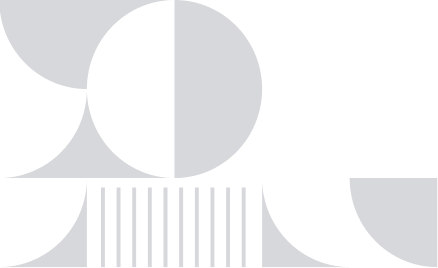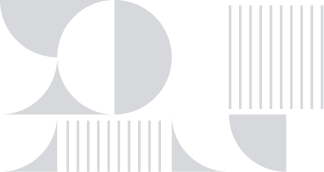




Angela Merkel
- Angela Merkel Reflects On Leadership, Controversies In New Memoir- Freedom: Memories 1954-2021|N18G
Angela Merkel's memoir, Freedom: Memories 1954-2021, released on November 26, 2024, reflects on her 16 years as German Chancellor. The book explores her interactions with world leaders like Russian President Vladimir Putin and U.S. President Donald Trump, and justifies her decision to block Ukraine’s NATO membership in 2008, a move critics argue contributed to Russia's invasion of Ukraine. Merkel led Germany and Europe through major crises, including the global financial and euro zone debt crises, as well as the COVID-19 pandemic. However, her legacy has faced scrutiny, with critics blaming her policies for Germany's dependence on Russian energy and trade with China, the rise of the far-right, and high energy costs. Merkel’s decision to open Germany’s borders to refugees and phase out nuclear power has also been criticized. Despite this, she remains popular and has not apologized for her actions, which she defends in her memoir as necessary during those times.
- Angela Merkel warns of isolating Russia after Vladimir Putin’s ‘big mistake’
“There’s no excuse for this brutal aggression,” the 67-year-old said on Tuesday in an on-stage interview at a theater in central Berlin. While she has remained active behind the scenes, it was her first public appearance in front of a larger audience since leaving office in December.
- Storyboard18 | BookStrapping: 'The Chancellor' by Kati Marton
Introducing ‘BookStrapping’, the pithiest book review in town. This week, we look at ‘The Chancellor: The Remarkable Odyssey of Angela Merkel’ by Kati Marton.
- German parliament elects Olaf Scholz as chancellor
Olaf Scholz, who won the secret ballot with 395 out of 707 votes, will lead Germany's first federal "traffic light" coalition, made up of the SPD, the ecologist Greens and the liberal Free Democrats and named for the parties' colours.
- Angela Merkel at farewell ceremony: Don't tolerate hate
Angela Merkel was honoured with a traditional military musical performance and march in front of almost all the country’s political elite save for the far-right Alternative for Germany, who weren’t invited.
- Unvaccinated should reflect on their duty to society: Angela Merkel
Angela Merkel, speaking at the invitation of New Zealand Prime Minister Jacinda Ardern at an Asia-Pacific business summit, said it was the task of politicians to make the case for serious interventions by being honest with the public.
- Coming weeks are decisive for Iran nuclear deal: Angela Merkel
Speaking during a visit to Israel, the outgoing chancellor said that Russian President Vladimir Putin and Chinese President Xi Jinping also had a responsibilty to help to push Iran back to the negotiating table, she said at a joint news conference with Israeli Prime Minister Naftali Bennett.
- Germany's Social Democrats win election but uncertainty beckons
For a country used to political stability after 16 years of Merkel's steady leadership, the coming weeks and months promise to be a rocky ride.
- What happens after the German election?
Germany's chancellor is not directly elected, but chosen through a vote in the Bundestag, the lower house of parliament, after a government has been formed. Merkel could remain in her post for weeks if not months while parties try to cobble together a coalition.
- German SPD seeks allies to replace Angela Merkel-led coalition
The centre-left Social Democrats (SPD) won 25.7% of the vote, ahead of 24.1% for Merkel’s CDU/CSU conservative bloc, according to provisional results. The Greens came in at 14.8% and the liberal Free Democrats (FDP) were on 11.5%.
- Austerity, far-right, Uyghurs: Angela Merkel's ambivalent legacy
During 16 years in power, the veteran navigated Germany through the 2008 financial turmoil and ensuing eurozone debt crisis, the 2015 refugee influx and now the coronavirus pandemic.
- How Germany's complex electoral system works
The reason is post-war Germany's election system, which mixes the "winner-takes-all" approach of Britain and the United States with the proportional representation system that allows for more small parties.
- The Merkel rhombus: How a hand gesture became a brand
It has its own Wikipedia page and even its own emoticon, "", and the German leader has been immortalised adopting the pose at London's famous Madame Tussauds waxworks museum.
- German chancellor Angela Merkel says must talk with Taliban
Angela Merkel told reporters on Sunday that “we simply have to talk to the Taliban about how we can get the people who used to work for Germany out of the country and to safety."
- Angela Merkel, Germany's 'eternal' chancellor, prepares to leave the stage
In office so long she was dubbed Germany's "eternal chancellor", Merkel, 67, leaves with her popularity so resilient she would likely have won a record fifth term had she wanted to extend her mandate.
- PM Modi, German Chancellor Merkel discuss Afghan situation
The two leaders also exchanged views on issues of multilateral interest such as the forthcoming COP-26 meeting and the Indian initiative to promote a dialogue on maritime security at the United Nations Security Council, the statement said.
- Neck rubs, tapped phones: German Chancellor Angela Merkel has history with US leaders
German chancellor Angela Merkel will meet US President Joe Biden on July 15, 2021. Merkel, who is nearing the end of her 16-year tenure as chancellor, has had some memorable meetings with American presidents in the past.
- COVID-19 | Germany not planning compulsory vaccinations: Angela Merkel
"We are at the beginning of the phase in which we are still promoting (vaccination), where we have more vaccines than we have people who want to be vaccinated," Chancellor Angela Merkel said.
- Germany relaxes restrictions on travel from India, four other countries from July 7
Germany's national disease control centre, the Robert Koch Institute, has announced that the UK, India, Portugal, Russia and Nepal were no longer “virus variant areas”, reducing travel restrictions for people arriving in Germany from those countries from July 7.
- Why more people are getting two different coronavirus vaccines
Some nations have tried that approach out of necessity, when supplies of a particular vaccine ran short, or out of caution, when questions were raised about the safety of a shot after some people had already received their first doses. U.S. regulators so far have been reluctant to encourage the practice.






